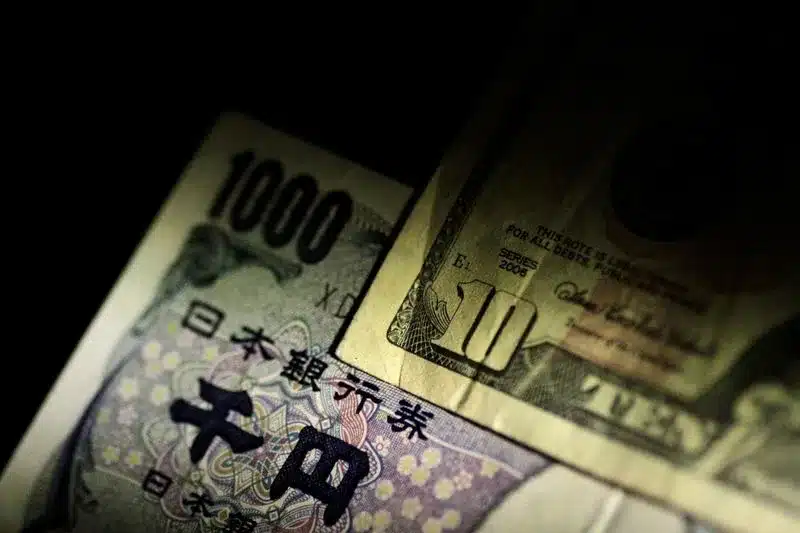The US dollar remained stable on Monday as traders awaited further information on US inflation, which is expected to have an impact on interest rates. Meanwhile, remarks from Japanese authorities failed to dampen the yen’s decline, which fell below the significant level of 160.
In early trading on Monday, the yen weakened to 159.94 against the dollar, its lowest level since April 29. At that time, the yen had reached a 34-year low of 160.245, prompting Japanese authorities to intervene and spend around 9.8 trillion yen to support the currency.
Currently, the yen is at 159.70 per dollar after Japan’s top currency diplomat, Masato Kanda, stated that authorities would take appropriate action in the event of excessive foreign exchange movements. He also mentioned that Japan’s inclusion in the US Treasury’s forex monitoring list would not restrict their actions.
The yen has faced renewed pressure following the Bank of Japan’s decision earlier this month to delay reducing its bond-buying stimulus until its July meeting.
At the Bank of Japan’s June policy meeting, some policymakers expressed the need to raise interest rates promptly due to concerns of inflation surpassing expectations. Despite expectations of further tightening of BOJ policy, the dollar/yen exchange rate has been steadily increasing and is now at 160. Currency strategist, Carol Kong, from the Commonwealth Bank of Australia, believes that unless the BOJ strongly hints at a hawkish policy, the dollar/yen exchange rate is unlikely to reverse its trend. The dollar index, which measures the U.S. dollar against six major currencies, is currently at 105.84, close to the nearly eight-week high of 105.91 reached last week. This week, all eyes will be on the U.S. personal consumption expenditures (PCE) price index, which is the Federal Reserve’s preferred measure of inflation, and is scheduled to be released on Friday.
According to economists surveyed by Reuters, the annual growth in the index is expected to slow to 2.6% in May. A weaker reading could increase the likelihood of an interest rate cut as early as September, which is currently priced at a 65% probability in the futures market.
Citi strategists noted in a client note that there is mounting evidence of a slowdown in the U.S. economy. They mentioned that softer demand is making it more likely for core inflation readings to be weaker.
Citi also expressed increasing confidence that the Federal Reserve will start lowering policy rates in September, citing a combination of slowing activity, a looser labor market, and slower inflation readings.
In addition to economic factors, geopolitical events will also be in focus this week. The first U.S. presidential debate is scheduled for Thursday, and the first round of voting in the French election will take place over the weekend.
The euro, which has been facing pressure since French President Emmanuel Macron called for a snap election earlier this month, remained relatively unchanged at $1.0693. The single currency has declined by 1.4% this month.
According to a poll published on Sunday, France’s far-right National Rally (RN) party and its allies have secured a lead in the first round of the country’s elections, with 35.5% of the vote.
OCBC currency strategist Christopher Wong predicts that the immediate impact on the euro will likely be negative, unless there is a surprising outcome where President Macron’s coalition secures a larger share.
In terms of other currencies, the pound remained unchanged at $1.2643. The Australian dollar stood at $0.6640, while the New Zealand dollar experienced minimal fluctuations at $0.6113.
(Reporting by Ankur Banerjee in Singapore; Editing by Christopher Cushing)
